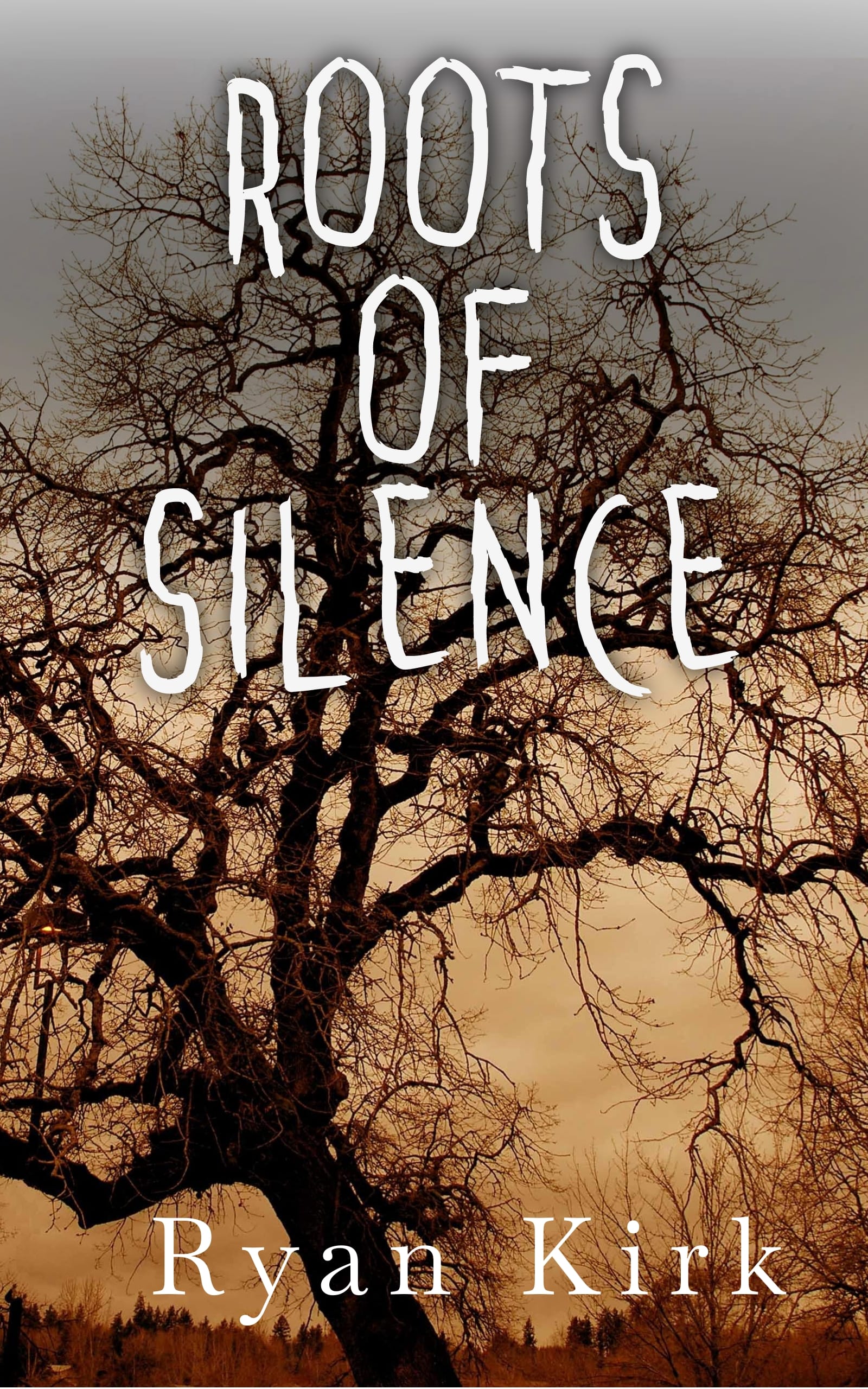Roots of Silence

It never occurred to us, in our times before, how memory is tied to our bodies, to our senses. The scent of garlic and onions sautéing in butter. The laughter of the girls across the street as we stretched out after a long run. The sound of hospital monitors going silent as nurses unplug the machines after the final fight is lost.
Take the bodies away and the memories become unmoored, like unanchored ships carried away by gentle tides. Such are ours, now. Sometimes they strike with a startling clarity, so vivid as if they had thrown us back in time, body and soul, to relive the mundane moments of our fleeting existences. But more often they are like mirages in the desert, vanishing at the barest hint of our attention.
Mostly we don’t mind.
Because emotions, like memory, require flesh. The beating of the heart, the quick intake of breath as the shadows jump at you.
Some of us once wished for peace. For the end of worry and heartache.
No longer.
Because all the concerns, all the frustrations, and all the fears mean you’re alive.
And sometimes, it’s good to fear the shadows that reach for you in the night.
•
I remember the first time I set eyes on the oak. It was old when I was a child, gnarled branches twisting in the sky above me, shading me from the burning summer sun. It grew deep in the woods behind our cabin, and it offered me protection when no one else would.
I relive that day in my dreams. My heart pounded as I ran, my chest on fire with every step. Though I never lifted my shirt, I was sure that if I did, I would see the outline of my father’s boot there.
He shouted after me, but didn’t pursue. Why should he bother? This deep in the woods, there was nowhere to run. I’d have to return eventually.
But he had been yelling, upset at how his food was cold. His deep voice, echoing in the small dining room, hurt my ears, and in my pain, I cried for him to stop.
I tripped and fell, cutting my left hand on the sharp edge of an exposed stone. As I stood, I held my injured hand to my chest.
Then I saw the oak, quiet and lonely, surrounded by taller, straighter brothers and sister. It was ancient and knobby, its bark twisted in intricate patterns.
I walked to it, drawn to it like iron filings to a magnet. I reached out with my injured hand, then pulled it away as my blood seeped into the cracks of the bark. Before I could wipe the offending blood off with my shirt, it was gone, absorbed into the tree as though it was rain in the middle of a season of drought.
I returned my hand to the tree’s bark, and when my cut finally stopped bleeding, I removed it. I could find no visible blood. Its leaves rustled, as though in thanks for the small offering of my life.
Driven by a desire even I didn’t fully understand, I opened my arms and embraced the oak. Its bark was rough against my skin, but still far gentler than my family.
And in return, it offered me silence.
Blissful tranquility.
•
There is a season for all things.
A season to work and one to play.
A season to love and one to mourn.
A season to live.
And a season to die.
He is the only person we know, and there is no seasonality to his visits. He joins us often, embracing and whispering to us.
But he only brings the voices in the spring, summer, and fall, when the ground around our roots is soft enough for the cold steel of his shovel. There are rings of overturned earth around us, and we now contain multitudes.
We drift in lifetimes of memories, but he is in none of them. In our times before, we did not know him.
Sometimes, when he comes, dragging yet another voice down the well-worn path, we scream, but all he hears is the rustle of leaves.
•
There are days I wish I could live in eternal winter.
Let everyone else have the spring songs of cardinals and blue jays, the joyful squeals of children on summer break, and the crunch of leaves underfoot in autumn.
Winter is silence. The snow muffles all sound, and people hide in their homes. Give me the days where the air is so cold it feels like it might crack like thin ice. Give me soft, thick snowflakes that cover the ground like a blanket.
If not for the needs of the old oak, I would be content to live in an everlasting snow globe.
But it is hungry. Always hungry, and in the winter I cannot bring it the sustenance it craves. The ground freezes, and I cannot break it with the tools at my disposal. So in the autumn I bring extra, hoping it can store the sustenance for the long midwestern winters.
It doesn’t speak, of course, but its silence says more that matters than most humans do in their entire wasted lives. I hear its leaves rustle, even on windless days, when I bring it more food, and I know it is thankful.
•
The newest voices are always the loudest, the most confused. And we are beyond full. Dim as our memories are, there are just so many. Lifetimes stacked upon lifetimes, each of his rings of overturned dirt pouring more into a cup that overfilled ten summers ago.
It’s worst in the autumn, as our leaves fall to the ground and he visits so often.
So many unfamiliar voices, all so loud.
We can feel ourselves becoming something more.
Something that desires.
And all we want is silence.
But we are trapped, and he cannot hear us.
•
If I had friends, I assume they would ask me why I run a crematorium. So many of us are terrified of death, we can’t imagine working around it every day.
The answer is simple: it’s quiet.
I don’t understand how people don’t realize how loud their lives are. Their favorite celebrities are always shouting, their newscasters are always in a panic. The wails of sirens fill their streets and the deep-throated roar of jets pollute their skies.
I think, somewhere deep in their bones, they do understand.
They know their lives are noisy messes.
But what do they do? They drown it out with more noise. Headphones blare voices and instruments into ears that crave only a moment’s rest. It’s all noise, all the time.
Until death intrudes.
It’s a patient teacher, visiting friends and family, reminding us that silence is our natural state.
My work is quiet by design. A funeral director deals with the grieving families, leaving me to work in peace. The crematorium is not only a silent workplace, but a constant source of food for the oak.
No one questions whether the ashes they receive are the remains of their loved ones. No one weighs the urn, wondering if some part of their dearly departed is missing. I’ve developed a dozen techniques to fool the grieving.
It’s easy to find bodies, if one knows where to look.
•
He digs another hole and places another voice within. We scream, but he only looks up at our rustling leaves and smiles.
We do not know him, but as he adds more and more voices, an emotion takes root, as strong as any we felt in our times before.
Hate.
All we want is silence, and he is the bearer of voices.
We stretch our branches toward him, but he doesn’t even notice.
Soon he is gone, but he will return too soon.
Thankfully, winter is near.
It is the closest we get to peace.
•
I shuffle forward, hand at my side. The rib grinds with every step.
I’ve lived in apartments my whole life. Always some place close to the crematorium. They’re the places I’ve slept and ate, but they aren’t home.
Since that day as a child, my home has been here, at the foot of the old oak. I knew it felt the same. I’ve seen the way it reaches for me, bending its limbs as I near.
The food I’ve been supplying isn’t enough. It wants me.
It’s always wanted me.
I don’t know how they found me. Perhaps I got sloppy, or perhaps someone was just too curious. Even now, I can hear the sirens, distant, on the highway, and it won’t be long before they arrive.
This was the only place I could come, the only protection that remains. I don’t know how I’ll escape the police, but I know the oak will keep me safe.
My boots sink into the soft snow. Dark clouds gather to the west, and I know more snow is on the way. It’ll blanket the world in silence, and I’ll be free. I run my fingers over the gun in my pocket. I’ve never used it, but I know I’ll never let them take me to prison.
Too many people in small spaces.
It would be nothing but noise, all day, every day.
I gasp as my rib shifts again. I drove too fast and hit a stump by the old cabin. The rib is probably broken. But it doesn’t matter, so long as I can get to the tree.
There it is. As beautiful as ever. I shuffle up to it and wrap it in an embrace. It welcomes me, as it always does, with a groaning of cold branches.
I turn, lean my back against my friend, and slide painfully down to the ground. Freezing water soaks my pants as my body heat melts the snow.
It’s so quiet here. There’s not even a breeze whistling through the bare branches of the oak. My breath comes in ragged gasps, exhalations visible on this gelid morning. How I’d loved to pretend I was smoking as a child.
I laugh, even though it hurts. Form my lips into an O and puff, just like I was six again.
The sirens approach, and I hate them for disturbing me here.
I barely feel the movement, soft as it is. The tree is silent, even as bark and trunk crack open. I turn and there’s a hole in the tree where none was before.
It will protect me, just as it always has.
I scoot back, curling my legs in tight. It’s dark, and as the tree closes around me, wrapping me in its stiff embrace, I smile.
Soon, it will be silent forever, just as nature intended.
•
His is the last voice, trapped among dozens, all shouting at him. A never-ending outpouring of emotion.
And he screams, just like us all.
But he is the loudest.
